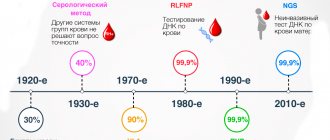The procedure for challenging paternity and canceling an act record
The procedure for disproving paternity largely depends on the marital status of the parents. If the child was born in marriage, the spouse is automatically recognized as the father.
The same rule applies if the child was born no later than 300 days after the divorce.
However, the above does not mean that annulment in marriage is not allowed.
A claim to challenge paternity must also be filed here. It must contain reasonable arguments as to why the person does not consider himself a father.
In addition, written evidence may be attached to the claim to support the plaintiff’s position. If the paternity record is annulled in court, the court may also take into account the testimony of witnesses.
Moreover, forensic genetic testing (DNA) is necessary in this category of cases.
Both the mother and the father of the child can insist on it. In addition, the court is not deprived of the opportunity to request the mother’s medical documents - an outpatient card.
Expert commentary
Roslyakov Oleg Vladimirovich
Lawyer, specialization civil law. More than 19 years of experience.
Ask a question
If the claim is satisfied, then the operative part states that the person is not the father of the child, indicating his full initials and date of birth.
Consequences of challenging paternity
The act of ending the consideration of a case is a court decision. It comes into force upon expiration of the thirty-day period provided for appeal. The period is counted from the date of the reasoned decision.
See also: Rules for registration and submission of an application to the registry office for marriage
A court decision that has entered into legal force must be sent to the civil registry office for information within 3 days. The parties to the process also have the right to obtain a judicial act. The winning party submits the decision to the civil registry office. Based on this, the record of paternity is annulled.
From the moment the registration is cancelled, the man is released from the responsibilities of a parent provided for by Family Law (participation in the upbringing and maintenance of a minor). After recognizing the lack of consanguinity and making the appropriate entry, the parent and child will not be able to inherit after each other.
How can you admit or deny paternity?
Issues directly related to the legal aspects of the origin of children are regulated by a number of norms of the Family Code. However, in practice, situations constantly arise that can only be resolved through the courts.
The subject of the appeal can be either confirmation of paternity or lack thereof. In a number of situations, special examinations are ordered to compare DNA samples of parents and children.
Avoidance for various reasons from participating in their conduct does not save the defendant from the final decision. The court has the right to declare the presence or absence of paternity proven, based on other materials of the case.
There are several ways to confirm paternity. Parents can contact the registry office. This is done when they are not officially married, but the man admits that the child is his.
When a woman files an application to court to establish the father and collect alimony, a counterclaim may be filed to challenge paternity.
After all, jurisprudence on this issue there are two types of claims.
So, if the mother wants to confirm that the man is the biological parent, then a corresponding statement of claim is filed against him to establish paternity.
The second parent can file the same claim if he insists on his rights in relation to the child.
In cases where a man doubts his involvement in the birth of a child, he files a claim to challenge paternity.
Any of the above documents is addressed to the district court at the defendant’s place of residence. For the application, a state fee in the amount of 300 rubles is paid as for a non-property claim.
In addition to parents and guardians (trustees), the child himself has the right to insist on establishing paternity. He will be able to do this when he turns 18 years old.
Claim to challenge paternity
If a child was born to two people who did not formalize a legal relationship with each other, disputes often arise about legal confirmation of its origin.
But it often happens that legal challenge of paternity is required during the period of official existence of the family.
For reference. Article 48 of the Russian Family Code stipulates that the fact of paternity is automatically implied in a situation where the birth of a child occurred within the framework of family ties or within three hundred days after their official termination.
For example, a representative of the stronger sex reasonably believes that a boy (girl) was born by his legal wife without his participation.
Justified, it could be:
- conflicts within the family,
- lack of cohabitation for a long time,
- Other circumstances may include illnesses that prevent one from becoming a father.
Then the suspicions must be supported by a court decision that has received legal force. Below is an indicative sample of the corresponding statement of claim. It is presented at the place of residence of the child’s mother.
Meshchansky District Court of Moscow
st. Kalanchevskaya 43a
Plaintiff : Timurov Leonid Dmitrievich
st. Stepnaya, 16, apt. 25.
Defendant : Timurova Vasilisa Petrovna
Lesnoy lane, 48.
Statement of claim to challenge paternity
Between me, Timurov L.D. and the defendant Timurova V.P. The Meshchansky district registry office of the city of Moscow on January 21, 2020, a marriage was officially registered.
On 02/01/2018, during the existence of a marital relationship, our son, Timurov Andrey Leonidovich, was born. Based on the provisions of Art. 51 of the RF IC, I am mentioned in the paragraphs of the act record by my father.
The marital relationship with the defendant initially did not work out; there were constant conflicts on a number of occasions. Sometimes it even came to separation.
Now a divorce has been officially filed between us based on the decision of the magistrate of the 27th precinct of Moscow dated December 4, 2018. The initiator of the appeal to the court was the defendant, with whom the child continued to live.
I have doubts that I am the father of Andrei Leonidovich Timurov. My parents and neighbors in the house where my wife and I lived at one time together told me about this.
Subsequently, the defendant herself admitted in words that the boy was not born from me. However, she refuses to carry out the necessary examinations.
According to Art. 52 of the RF IC, data on the child’s parents in the birth register, formed within the framework of clause 1 of Art. 51 of the mentioned code can be adjusted by the court at the initiative of the person recorded as the father or mother of the child.
I have every reason to think that I am not the boy’s natural father. Therefore, I consider it necessary to insist on conducting a forensic medical examination to finally determine whether I am the father of Timurov A.L.
Based on the above arguments, and based on paragraph 1 of Art. 52 RF IC, Art. 79 Code of Civil Procedure of the Russian Federation,
I ask the court:
1) Order an official forensic genetic DNA examination to determine the paternity of Andrey Leonidovich Timurov.
2) Oblige the defendant to facilitate the collection of biological material from the child for a forensic genetic examination in order to determine family ties with the plaintiff.
3) The costs incurred in connection with the conduct of the appointed examination shall be borne by the defendant.
4) A record made about the paternity of Leonid Dmitrievich Timurov in relation to the child of Andrey Leonidovich Timurov, born 02/01/2018. in the birth registration book, based on the results of a forensic genetic examination, in the absence of biological paternity, shall be declared invalid.
Applications:
1) Evidence of payment of state duty through the establishment of a bank.
2) Copies of marriage certificates and its termination.
3) A copy of the issued birth certificate of the child.
4) Claim with available materials for the defendant.
Plaintiff Timurov L.D.
Statement of claim to challenge paternity
Who has the right to challenge paternity in court?
The following may act as a subject to challenge paternity:
- a man recorded as the father of the child, but who is not one and did not know about it at the time of recording;
- the biological father of the child, not recorded as such in the certificate;
- mother of the child;
- adult child;
- legal guardians.
The right to apply to court with a statement of this category is deprived of:
- a man who submitted a joint application with the child’s mother to register him as a father (Article 52 of the RF IC);
- parents who gave consent to IVF or implantation of someone else’s biomaterial (Article 51 of the RF IC);
- a man and a woman registered as parents at the request of the surrogate mother;
- a person who does not have procedural rights to challenge paternity (for example, the mother of a man who is registered as the father).
Consequences of paternity revocation
Satisfying a claim to challenge paternity carries a number of legal consequences. First of all, the necessary changes must be made to the child’s birth certificate. They concern the surname and information about the father.
In addition, a person other than the child's father may insist that he be given the mother's surname. It should be noted that the relevant requirements may be indicated in the statement of claim.
If the court rejects the claim, the person will continue to be considered the father. And if the recognition of paternity as invalid took place after the divorce, the child’s mother can begin legal proceedings to collect child support.
Examples from judicial practice
When a child was born during a marital relationship or within three hundred days after a formal divorce, the default presumption of paternity applies.
However, the law allows one to cast doubt on the relevant fact. Both the mother and his putative father have the legal right to seek assistance from the district court.
Several precedents are given below as illustrative examples.
Challenging paternity after divorce at the request of the mother
The essence of the existing dispute is briefly as follows. The woman turned to her ex-husband with a lawsuit, in which she asked to testify that he is not the father of her daughter.
The girl was born before three hundred days had passed since the divorce was completed. Therefore, the default entry included information about the former spouse.
And also a claim was made that paternity belongs to the plaintiff’s current common-law husband. The defendant did not object to the stated demands.
By its decision of June 23, 2020 in case No. 2-68/2017, the Shelabolikha District Court of the Altai Territory satisfied the claim. At the same time, the motivational part was based on the results of officially conducted examinations.
Denial of paternity by a man
A citizen of Nikolaev (last name has been changed) filed a lawsuit in court. He asked to exclude the entry about the child with reference to Nikolaev’s paternity.
The requirements were motivated by the fact that on the day the boy was born, the couple had not lived in the same territory for a long time. In addition, his birth served as the basis for the subsequent dissolution of the marriage.
By the decision of the Zyuzinsky District Court of Moscow dated February 11, 2014 in case No. 2-353/2014, the plaintiff’s demands were satisfied. As a result, the court decided to exclude current information about the father from the registry office record.
If the absence of paternity is known in advance
The subject of the dispute was the appeal of a man challenging the paternity of a girl born during a marital relationship. He was included in the deed record by his father.
The application is motivated by the fact that the plaintiff could not have children due to health problems. In turn, the defendant objected to the demands put forward.
She explained to the court that she gave birth to a child from another man in agreement with her husband, and he knew it. In addition, the plaintiff took care of the girl and paid alimony even during her studies at the institute.
By decision of the Otradnensky District Court of the Krasnodar Territory dated May 23, 2017, case No. 2-560/2017, the claims were denied.
The judge pointed out that the abolition of paternity can only take place in a situation where the man did not know that he was the father of the girl at the time of the formation of the act record.
When spouses do not live together
A woman filed a lawsuit to exclude her husband as the father from the birth record of her son. The statement is justified by the fact that the spouses have not lived together for a long time and do not run a household.
The defendant did not object to the demands and confirmed that, for his part, he had nothing to do with the paternity of his son.
Under such circumstances, the Zaeltsovsky District Court of Novosibirsk, by its decision dated May 13, 2017, case No. 2-1110/2017, considered it necessary to satisfy the claim.
Challenging paternity - judicial practice
Let's look at some provisions from judicial practice with examples:
- In some cases, the court will refuse to satisfy the biological father's claims if the child's mother is in a registered relationship with the man who is registered as the father. This is due to the protection of the rights of a minor and the provision of the law that the husband of the child’s mother is registered as the father of the child. For example, a woman during marriage gave birth to a child not from her husband. He knew about this and was recorded as the father. Later, the biological father went to court. In this case, the court will refuse the blood parent, since there cannot be 2 records about the child’s father. The wife's husband considers himself the father and is recorded as him in the certificate. The child also considers him his dad and has a strong attachment.
- Genetic testing is one of the proofs. It is assessed equally with other facts presented and does not have a superior position. For example, a man gave his consent to register himself as a parent. A few years later he filed a lawsuit to cancel the recording. As evidence, he provided the results of a DNA examination confirming the absence of a family connection. The court rejected the stated demands, since the man could not prove that at the time of giving consent to make a record of paternity, he did not know that the child was not his blood.
- When considering cases of this category in court, the key point is to provide evidence of the absence of information that the man at the time of recording knew that he was not the father. According to the Supreme Court Resolution, a man has the right to challenge the recording if the actions taken were committed under the threat of blackmail, deception, violence and other vices of will.
- Cases challenging paternity have no statute of limitations. However, the law does not apply to children born before March 1, 1996. In this case, a one-year period for appealing paternity in court is applied from the moment the man learned that he is not the father of the child.
- The guardianship authorities are involved as a third party. They monitor that the rights of the child are not violated.
See also: Deprivation of parental rights of a mother or father - procedure, sample statement of claim
Some questions and answers
Many people turn to lawyers with their problems regarding invalidation of paternity. Both mothers and fathers of children ask questions to professionals.
Situations vary. If a child was born within the framework of a family relationship, it can be more difficult to refute paternity.
However, courts often make decisions in favor of the interested party to the dispute. It is only important to prepare your claim correctly.
Denial of paternity
My husband flatly refuses to confirm that our little daughter is his and is threatening us with divorce. What should I do?
Alla, Moscow.
Expert commentary
Roslyakov Oleg Vladimirovich
Lawyer, specialization civil law. More than 19 years of experience.
Ask a question
Contact the court with a substantiated claim to establish the fact of paternity. At the same time, you should insist on ordering an examination. Judges usually agree to this request. It is important to know that if the spouse refuses the research, the court ultimately has the right to do without its results. There is an article for this. 79 Code of Civil Procedure of the Russian Federation.
The birth of a child without long-term cohabitation of spouses
I have not lived with my wife for several years. Moreover, now we are in different cities.
I heard from friends that her son was born a month ago. How can I protect myself from claims regarding alimony?
Fedor, Balashikha.
Expert commentary
Roslyakov Oleg Vladimirovich
Lawyer, specialization civil law. More than 19 years of experience.
Ask a question
For now you can do nothing. If a claim arises, counterclaims can be made. They will concern the exclusion of information about your paternity from the registry office documents.
Evidence of non-paternity
This is the situation. My wife gave birth to a girl as part of our marriage.
I have reasonable suspicions that this is not my daughter. What is the best way for me to deal with this situation?
Konstantin, Krasnogorsk.
Expert commentary
Roslyakov Oleg Vladimirovich
Lawyer, specialization civil law. More than 19 years of experience.
Ask a question
From a worldly point of view, it is best to talk to your wife and resolve all differences. However, you can insist on conducting a biological examination. The court has the authority to appoint it.
Alimony and paternity
Please advise how to solve this problem of mine. I am currently paying child support for my five year old son.
However, I became reliably aware that he has a different father. What should I do?
Evgeniy, Vnukovo.
Expert commentary
Roslyakov Oleg Vladimirovich
Lawyer, specialization civil law. More than 19 years of experience.
Ask a question
The only correct solution would be to go to court. The submitted statement of claim may contain several demands. The first of them has an emphasis on legally establishing the fact that you are not the boy’s natural father. You also need to ask to cancel the existing record for the child and exemption from paying existing child support. When collecting them by bailiffs, it is necessary to transfer to them the court decision that has entered into force.
State duty and processing time
According to Art. 333.19 of Tax Legislation, the amount of state duty is 300 rubles. The fee is paid by the plaintiff. If the claim is satisfied, the amount of tax is recovered from the defendant. When appealing, a state fee of 150 rubles is charged. Payment details can be found at stands in the courthouse or on its website.
The state duty can be returned if at the time of application no decision has been made and the plaintiff decides to abandon the stated claims. To do this, you need to obtain a certificate from the court and submit it to the tax service. Within three months, the money will be credited to the applicant’s account.
The judge makes a decision on accepting the statement of claim, leaving it without progress, returning it or refusing to consider it within five days. If the application remains without progress, the applicant is informed about this and given a period to eliminate the deficiencies. Otherwise, after the allotted time has expired, the claim is returned to the plaintiff. After making a ruling to accept the case for proceedings, the judge sets a date for a preliminary hearing. After the preliminary meeting, the consideration proceeds to the main meeting.
Important: according to Art. 154 of the Code of Civil Procedure of the Russian Federation, in total, the case must be considered within a period not exceeding 2 months. However, in practice this is not always possible. Thus, the process is delayed if the defendant requests to postpone the court hearing (he has this right if there are good reasons). Also, one should not ignore the fact that courts in large cities are overloaded, and cases are not always considered in a timely manner. If the process is seriously delayed, the plaintiff has the right to apply to the Chairman of the court with a request to expedite it.






